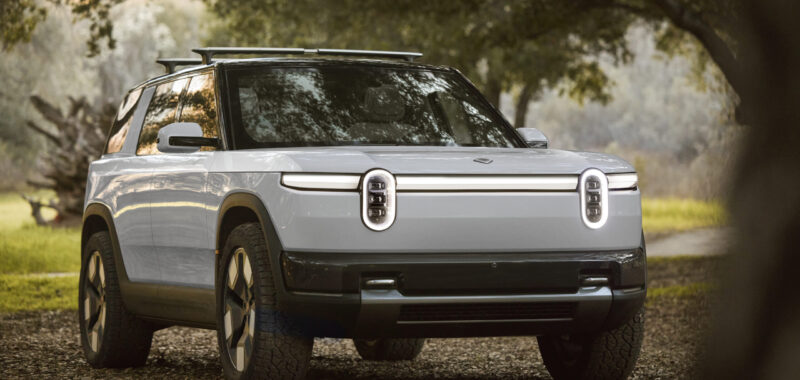Electric vehicle (EV) maker Rivian (RIVN 13.71%) said late Tuesday that it closed a hugely important deal, in which giant Volkswagen (VWAGY -2.40%) will invest billions in the California-based upstart.
Although the deal will dilute existing Rivian shareholders to some extent, on balance it’s hugely bullish for the company. The Volkswagen deal ensures that Rivian will have ample cash to launch its smaller, higher-volume R2 and R3 models — and opens up a potentially lucrative new market for its technology.
The deal between Rivian and Volkswagen
In a nutshell, Rivian and Volkswagen have formed a joint venture that will take the technology Rivian is developing for its upcoming R2 model and adapt it for some of Volkswagen’s upcoming electric vehicles.

Rivian’s next model is the midsize R2 SUV, due in mid-2026 at a starting price around $45,000. Image source: Rivian.
Rivian’s technology is a so-called “zonal” architecture, in which different “zones” of an EV are connected on a network that can be configured to support many different types of vehicles at different price points. Rivian has been developing this architecture for its upcoming midsize R2 SUV, and has planned to use it in other models that will follow. Now Volkswagen will use it as well — initially in higher-end models from its Porsche and Audi brands, and later in less-expensive VW-brand EVs as well.
But while the deal includes shared hardware and software, that doesn’t mean that Volkswagen products will drive or feel like Rivians. Rivian’s architecture can be programmed to provide many different types of experiences — a Porsche sports car built on the architecture will look, drive, and feel very different from one of Rivian’s off-roaders. The shared technology will be behind the consumer experience, not part of it.
And the deal does not include Rivian’s proprietary electric motors or autonomous-vehicle technology. Those will continue to be Rivian-only.
When and how Rivian will receive up to $5.8 billion from Volkswagen
Rivian CFO Claire McDonough said that the deal is worth “up to $5.8 billion,” a total that includes an optional $1 billion loan. Here’s how the investments will work:
- Rivian received $1 billion from Volkswagen when the deal was first announced in June 2024. At the time, Volkswagen received a convertible note that converts to Rivian stock on Dec. 1.
- Volkswagen will pay another $1.32 billion this week, as part of the deal’s closing. That’s consideration for the intellectual property that Rivian is licensing to the joint venture, as well as a 50% stake in the JV.
- Volkswagen will invest another $1 billion no earlier than June 2025, once Rivian achieves two consecutive quarters of gross profit (or two nonconsecutive quarters of positive gross profit of at least $50 million.) Rivian has five years to achieve that milestone, but expects to do it sometime in 2025.
- Another $1 billion is expected in 2026, once the joint venture’s technology is successfully tested in a Volkswagen vehicle in winter conditions.
- Finally, Volkswagen will invest another $460 million once the first salable VW based on the joint venture’s technology is produced, or by January 2028, whichever comes first.
Rivian also has the option to take a $1 billion loan from Volkswagen in October 2026. The loan would be backed by Rivian’s stake in the joint venture. Rivian would have 10 years to repay, but it would owe no principal payments until 2029.
Why the Volkswagen deal is so bullish for Rivian
While Volkswagen’s investments in Rivian will dilute existing shareholders to some extent, I don’t think that’s a big deal. I see at least three reasons why this is bullish for Rivian:
- The deal insulates Rivian from potential disruptions in the U.S. market for electric vehicles. That’s a real concern as Donald Trump prepares to return to office — it’s very possible that current U.S. incentives for EV buyers will be reduced or eliminated.
- Assuming that the milestones are met — and they’re all reasonable — the deal ensures that Rivian will receive annual infusions of cash no matter how the stock performs, and no matter what the Trump administration does.
- The deal opens a potential market for the technology beyond Volkswagen. If the zonal architecture turns out to work well in Volkswagen’s EVs, other large global automakers might look to license the system from the joint venture.
While Rivian had $8.1 billion in total liquidity as of Sept. 30, analysts have been concerned about the company’s burn rate. Simply put, the cash Volkswagen will invest under the deal makes it more likely that Rivian will survive long enough to get to sustainable scale. That should greatly reduce the risk of holding the stock over the next several years.

